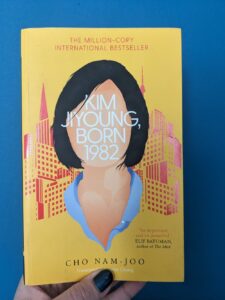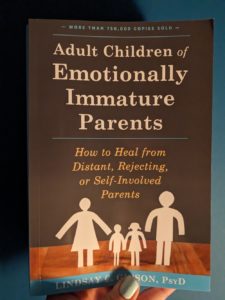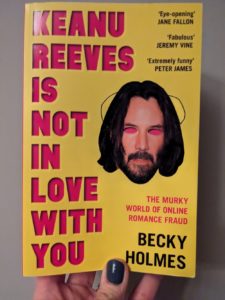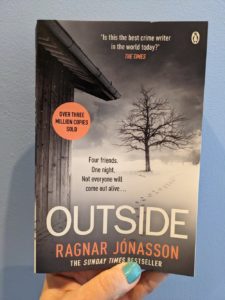Kim Jiyoung, Born 1982 by Cho Nam-Joo
Written by Ashley Kelmore, Posted in Reviews
Best for:
Anyone interested in a straightforward exploration of a woman’s life under patriarchy. In this case, the patriarchy women experience in Korea.
In a nutshell:
Kim Jiyoung’s story, from birth through motherhood, and all the times her being a girl / woman has been held against her.
Worth quoting:
“It felt more like harassment or violence than pranks, and there was nothing she could do about it.”
“It wasn’t that she didn’t have time – she didn’t have room in her head for other thoughts.”
“The world had changed a great deal, but the little rules, contracts and customs had not, which meant the world hadn’t actually changed at all.”
Why I chose it:
I’d heard about the 4B movement recently, and this book (and the film it was eventually made into) is referenced as influencing it: https://en.wikipedia.org/wiki/4B_movement
Review:
On the surface this is a simple book. It’s a totally straightforward telling of one woman’s story, from birth through primary school, university, work and marriage.
From being a disappointment to her parents purely because she was a girl, to working to put her younger brother through university before she was able to go, to trying to find a job, to getting married and having a child. And all the ways that society puts the boys and men in her life first, both figuratively and, in the case of the order of who gets served lunch in primary school, literally.
But this is also a clever book – it takes a story that could be the story of so many women and makes it personal. It doesn’t have flowery writing, or long scenes of dialog. But it has emotion – and a lot of it. I had so many feelings while reading it. I often wrote in the margins such deep words as ‘gross’ and ‘what the fuck.’
Author Cho delivers an unexpected (to me, as I wasn’t familiar with the book or film at all) gut punch in the last few pages that still has me thinking a day after finishing the book. It’s an interesting framing that drives home all the pages that came before it.
What’s next for this book:
Recommending it to others.









